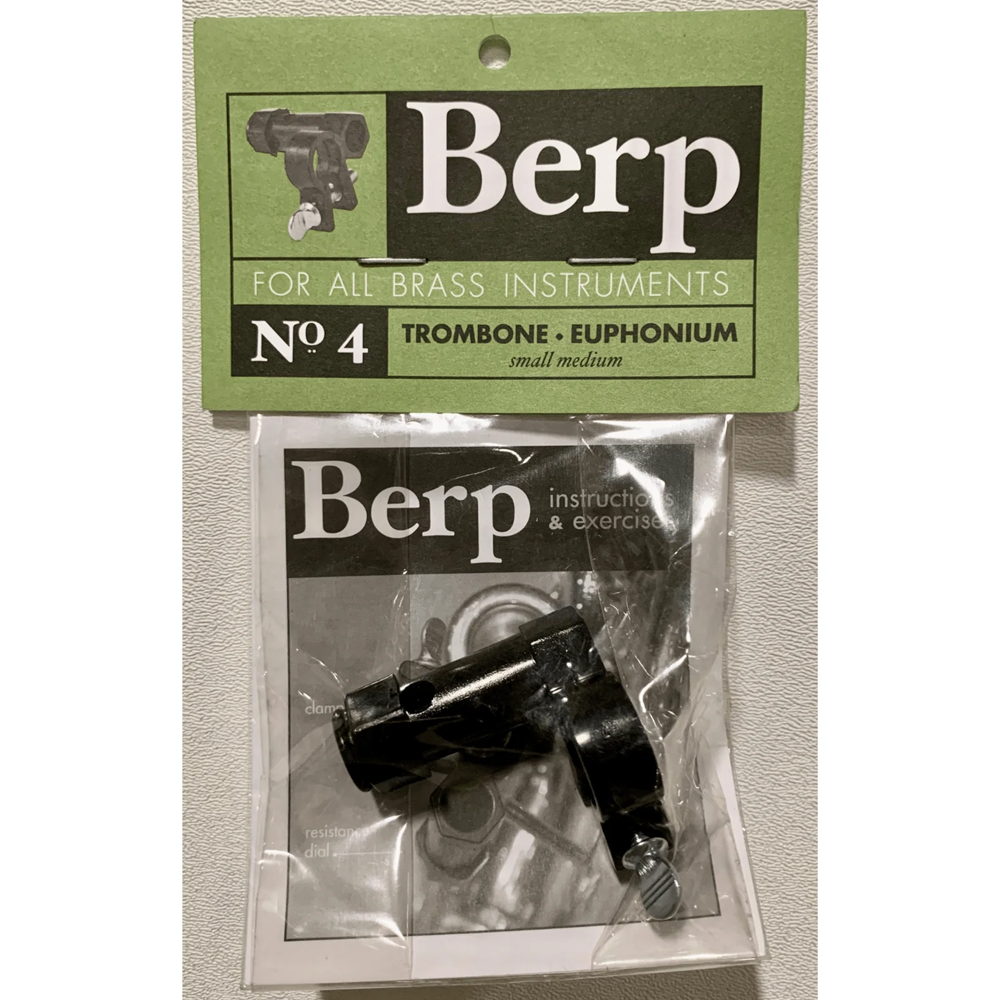Berp BERPST Trombone Baritone SMALL Shank Mouthpiece Buzzing Aid
Description & Specs
how to berp
The clamp. The Berp clamp fits firmly onto the open end of the instrument’s receiver, with the mouthpiece removed. It’s designed to tighten around a round, hex, or convex-shaped opening. If a receiver has an oversized ring at the opening, it may be necessary to push the clamp past that before tightening down. For some receivers, you may also need to add black electrical tape to the inside of the clamp to help prevent slippage and ensure a secure fit. Most people prefer to line The Berp up parallel to the receiver at the “three o’clock” position. You may want to experiment with other positions to determine what’s best for you. Once The Berp is firmly attached, you can easily alternate between buzzing and playing your instrument by switching the mouthpiece.
The resistence dial. The dial for the trumpet, horn, and cornet Berp should be positioned below the holes and pushed up to partially cover them to create the desired resistance. The dial on The Berp for trombones, euphoniums, and tubas should be positioned above the holes and lowered to create the desired resistance. Beginners usually have a better chance of getting a good buzz with slightly more resistance. Once a good buzz is achieved, resistance on The Berp should be dialed similarly to that of the instrument.
- Maximize sound production and ear training
- Instantly switch between playing and buzzing
- Build embouchure, endurance, and range
- Adjust resistance to fit player preference
- Warm up quietly





